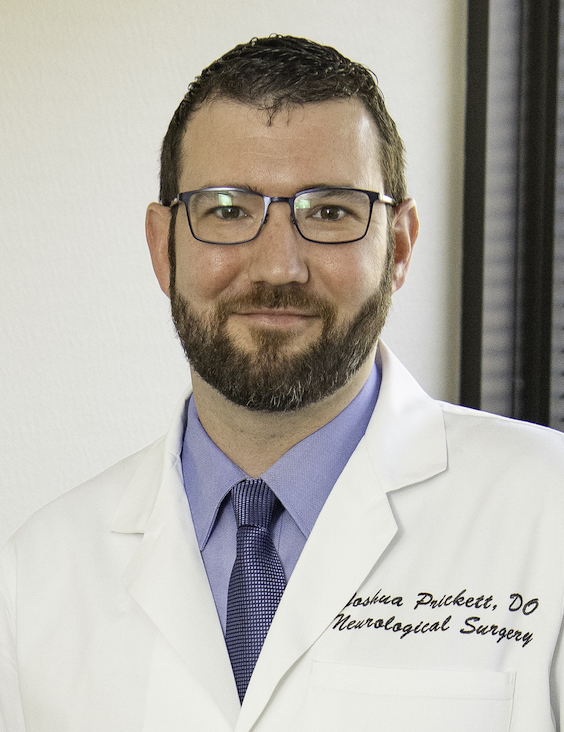The Benefits of Advanced Technology and a Comprehensive Approach to Care
August 24, 2021

Brain tumors can occur at any age and, outside of genetic factors, researchers do not know exactly what causes them. Neurosurgeon Joshua Prickett, DO, says pituitary abnormalities are common and almost always benign. “One in five people have a pituitary abnormality, including benign lesions such as a cyst or a growth called a pituitary adenoma.”
The Neuroscience team with Aiken Physicians Alliance and Aiken Regional Medical Centers take a comprehensive approach, which includes CT scans, MRIs or other tests to determine the exact nature of each lesion. Sometimes it can be a fluid-filled cyst on the pituitary gland, in which case it will usually be monitored over time. Certain criteria must be met to be considered for surgery. “We make sure a lesion is not affecting the optic nerves or vision," Dr. Prickett says. "We test the hormone function to make sure a tumor is not producing excess hormones and that there is no pressure on the gland causing a lack of hormone production.”
Brain Tumors
When a tumor is discovered, a surgical biopsy is sometimes the only way to diagnose it. "Even though we use imaging technology to detect the tumors, the biopsy results help determine the type of tumor and the best treatment," Dr. Prickett says. Tumors are graded based on biological behavior, with grade one being benign; grades two and three considered intermediate; and grade four as malignant.
"Benign, grade one tumors such as meningiomas or vestibular schwannomas are fairly common, and can occur without symptoms or grow large and cause seizures, vision problems, weakness or headaches. We initially monitor them, and if there are any changes or growth, we can treat them with radiation, stereotactic radiosurgery or surgical resection," says Dr. Prickett. Surgery has been made safer with new technologies now available at Aiken Regional, such as stereotactic and fluorescence-guided surgery.
The Neuroscience team can treat a majority of tumors, thanks to newer technology and medications, according to Dr. Prickett. “Some tumors respond very well to medication that treat the tumor directly, shrinking it. Other tumors may require radiation, surgery or chemotherapy, or a combination of those treatments,” he says. “We have a multidisciplinary team—including medical and radiation oncologists, surgeons, radiologists and pathologists—that meet weekly to discuss cases. This helps ensure our patients receive the best possible, comprehensive treatments while focusing on the goal of preserving the most function.”
About Dr. Prickett
 Joshua T. Prickett, DO, provides services including neurosurgical oncology, brain tumors, pituitary tumors, minimally invasive neurosurgery, neurosurgical trauma and critical care, peripheral nerve disorders, skull base surgery and spine surgery. Dr. Prickett earned his medical degree at A.T. Still University School of Osteopathic Medicine in Mesa, Ariz., and underwent residency training at Virginia Tech Carilion School of Medicine in Roanoke. In addition, he completed fellowship training in skull base, pituitary and minimally invasive neurosurgery at Swedish Neuroscience Center in Seattle, Washington.
Joshua T. Prickett, DO, provides services including neurosurgical oncology, brain tumors, pituitary tumors, minimally invasive neurosurgery, neurosurgical trauma and critical care, peripheral nerve disorders, skull base surgery and spine surgery. Dr. Prickett earned his medical degree at A.T. Still University School of Osteopathic Medicine in Mesa, Ariz., and underwent residency training at Virginia Tech Carilion School of Medicine in Roanoke. In addition, he completed fellowship training in skull base, pituitary and minimally invasive neurosurgery at Swedish Neuroscience Center in Seattle, Washington.
